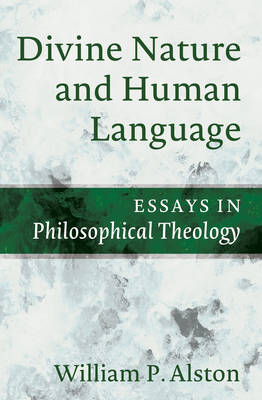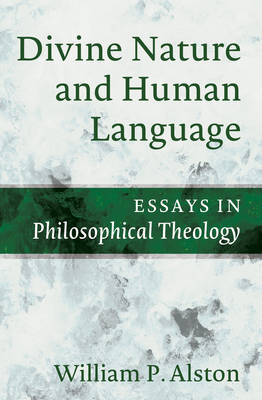
- Afhalen na 1 uur in een winkel met voorraad
- Gratis thuislevering in België vanaf € 30
- Ruim aanbod met 7 miljoen producten
- Afhalen na 1 uur in een winkel met voorraad
- Gratis thuislevering in België vanaf € 30
- Ruim aanbod met 7 miljoen producten
Zoeken
Omschrijving
Divine Nature and Human Language is a collection of twelve essays in philosophical theology by William P. Alston, one of the leading figures in the current renaissance in the philosophy of religion. Using the equipment of contemporary analytical philosophy, Alston explores, partly refashions, and defends a largely traditional conception of God and His work in the world a conception that finds its origins in medieval philosophical theology. These essays fall into two groups: those concerned with theological language (Part 1 of the volume) and those that deal with the nature, status, and activity of God (Parts II and HI). In Part 1, Alston develops a conceptual scheme for discussing the topic of theological language. He also argues that there is a core of literal talk about God and even a core of predicates univocally applicable to God and creatures. Furthermore, he shows that God can be referred to directly as well as descriptively. In Parts II and III, the author sketches out a middle way between a classical conception of God exemplified by Aquinas and the more recent ""process"" or ""panentheist"" conception exemplified by Hartshorne. Alston argues that such a God can act so as to have real effects in the world and can enter into genuine dialogue and otherwise interact with human beings. In addition, he defends the idea that God provides a foundation for morality. The first collection of Alston's ground breaking work in the philosophy of religion, Divine Nature and Human Language will be welcomed by scholars and students of the philosophy of religion, metaphysics, theology, and religious studies.
Specificaties
Betrokkenen
- Auteur(s):
- Uitgeverij:
Inhoud
- Aantal bladzijden:
- 294
- Taal:
- Engels
Eigenschappen
- Productcode (EAN):
- 9781725283190
- Verschijningsdatum:
- 28/08/2020
- Uitvoering:
- Paperback
- Formaat:
- Trade paperback (VS)
- Afmetingen:
- 152 mm x 229 mm
- Gewicht:
- 394 g

Alleen bij Standaard Boekhandel
+ 99 punten op je klantenkaart van Standaard Boekhandel
Beoordelingen
We publiceren alleen reviews die voldoen aan de voorwaarden voor reviews. Bekijk onze voorwaarden voor reviews.











